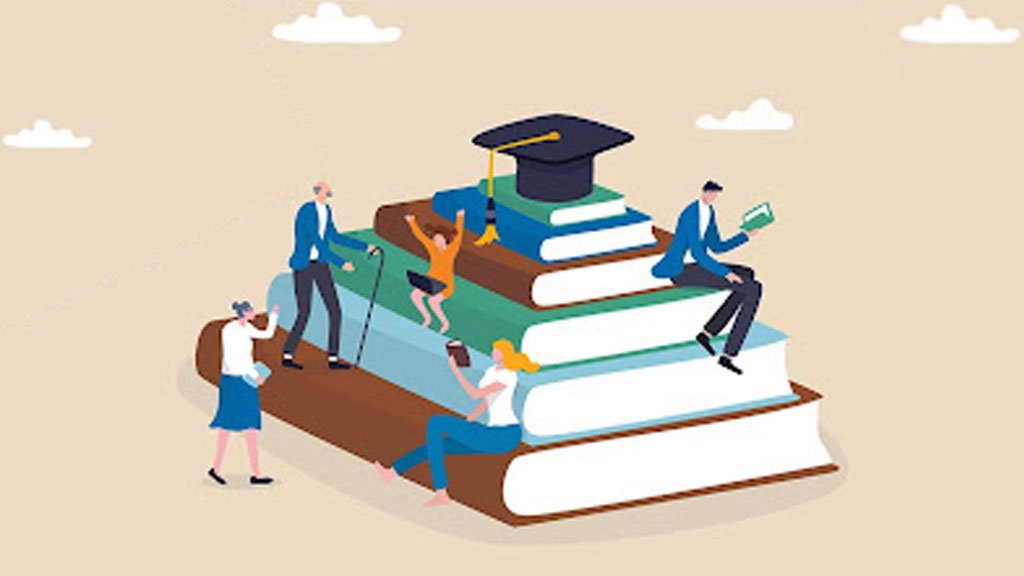Do you believe in lifelong learning? Do you still regularly pursue fresh knowledge? After leaving school, it’s easy to lose the habit of learning new things. If that applies to you, it’s time to accept that your long-term professional success depends on your willingness to push yourself to learn new skills.
Although many people claim to be lifelong learners, their actions frequently fall short of the ideal. The continuous, voluntary, and self-driven pursuit of information for either professional or personal objectives is referred to as “lifelong learning.”
To be a lifelong learner, you need to be growing and have a natural curiosity about the world. You’re constantly looking for fresh problems, ideas, and encounters that can teach you more.
You’re expanding your knowledge, reading books, and acquiring new abilities. Lifelong learners constantly strive to improve both personally and professionally, becoming their finest, most well-rounded selves.
What happens when you stop learning?
Many people stop learning after school and after a certain point in their lives. They regret not learning any particular skill. The following things happen when you cease the lifelong learning process:
Your creativity will fade
By connecting what we don’t know with something we do, learning fosters creativity. Our ability to relate ideas to one another will improve as we gain more knowledge. We should learn something new every day if we want to be more creative.
Your decision-making skills won’t improve
Gaining more knowledge can help you acquire the talent for making wise decisions. This entails conducting research or staying current, as failing to learn will hinder us from acquiring new knowledge that will enable us to make wiser decisions.
You won’t mature into the person you can be
We all have the capacity to do whatever we set our minds to, but if we aren’t pushing ourselves to do new things, we won’t develop. Knowing more about ourselves enables us to examine our actions and the motivations behind them. Also, it enhances our minds and provides mental stimulation. Although learning can be difficult, it is preferable to ignore it.
You will lack self confidence
Learning more skills is one approach to boosting confidence. This can be achieved by acquiring more training and practicing with a specific computer application. The person’s confidence will increase as their skill level improves. Continuously immersing ourselves in a state of learning is crucial for boosting self-confidence.
So if you think about the benefits of lifelong learning, It includes the following:
Benefits of lifelong learning
- Keeps the mind active.
- Enhance memory and boost confidence.
- Provides a low-cost means of trying something new.
- Saves money as you acquire “do-it-yourself” skills
- Leaves you with a sense of satisfaction.
- Facilitates meeting people who have similar interests to yours.
- Builds on your existing skills
- Provides a chance for you to pick up a new trade or skill and earn more money.
- Introduces you to new hobbies that you might pursue with friends and family.
How to live, lead and learn lifelong?
Read books
It makes no difference how long it takes you to finish a book—a year, a week. Always try to carry a book with you that you are reading so you can finish it when you have time. I can read a book a week if I just take a few minutes out of my day in between activities. That’s a minimum of fifty every year.
Maintain a “to-learn” list
Everybody has a to-do list. These are the things we have to do. Consider keeping a “to-learn” list as well. You can jot down suggestions for new research areas on it. Maybe you want to pick up a new language, develop a talent, or read Shakespeare’s whole works. Whatever inspires you, list it.
Connect with intellectual people
Consider interacting more with people who think. Not simply intelligent people, but those who spend a significant amount of their time mastering new skills. Your habits will be influenced by theirs. Better still, they might even impart some of their wisdom to you.
Guided thinking
According to Albert Einstein, any man who reads excessively and uses his own brain inadequately develops lethargic thought patterns. It is not sufficient to only study the wisdom of others; one must also engage in independent thought.
Spend some time in your notebook, in meditation, or thinking about the concepts you have studied.
Practice
If skill-based learning is not put to use, it is useless. Writing a program differs from reading a book on C++. Picking up a brush and studying painting are not the same thing. Put your knowledge to use if it has any practical applications.
Search for jobs that encourage learning
Choose a profession that promotes lifelong learning. If your current position doesn’t allow for much intellectual freedom, you might want to change. Don’t work 40 hours per week at a job that isn’t challenging.
Thus, one should keep learning throughout life in order to develop as a human being. Because one who stops learning basically stops growing.
You can also learn about starting a business from Mr. Shesha Mohanty, he is a business development expert in India who can help you build a business and make it bigger.
Check out about Mr. Shesha to know more.

